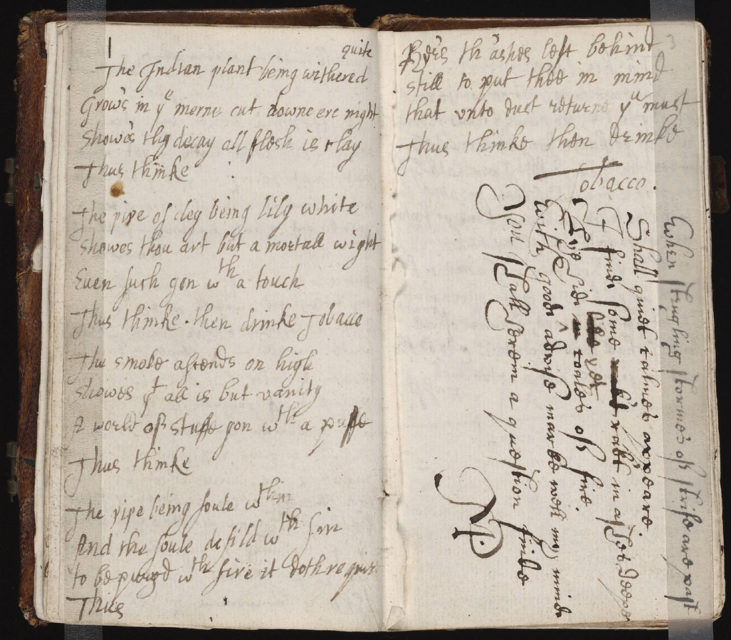I’ve been blogging continuously for over fifteen years, but I’ve never found — or even considered — a single unifying theme for the blog. There are consistencies over the years, like the QotD posts, but in general the blog acts as a place for me to note things that interest, excite, or agitate me. After my grandfather died in 1979, I inherited a few of his notebooks, which included scores of lists on all kinds of things … my grandmother said it was all gathered to help with crossword puzzles, but the range of information was much wider than you’d normally find in crosswords. I think, had he lived long enough, my grandfather would have been a dedicated blogger. The blogging world has a lot of blogs like mine, where the blogger notes seemingly random bits of information, and this is far from new: they used to be called “commonplace books“:

Anonymous mid-17th century manuscript containing poems by various authors, in various hands, including Shakespeare’s second sonnet.
Wikimedia Commons.
Commonplace books (or commonplaces) are a way to compile knowledge, usually by writing information into books. They have been kept from antiquity, and were kept particularly during the Renaissance and in the nineteenth century. Such books are essentially scrapbooks filled with items of every kind: recipes, quotes, letters, poems, tables of weights and measures, proverbs, prayers, legal formulas. Commonplaces are used by readers, writers, students, and scholars as an aid for remembering useful concepts or facts. Each one is unique to its creator’s particular interests but they almost always include passages found in other texts, sometimes accompanied by the compiler’s responses. They became significant in Early Modern Europe.
“Commonplace” is a translation of the Latin term locus communis (from Greek tópos koinós, see literary topos) which means “a general or common topic”, such as a statement of proverbial wisdom. In this original sense, commonplace books were collections of such sayings, such as John Milton’s example. Scholars now understand them to include manuscripts in which an individual collects material which have a common theme, such as ethics, or exploring several themes in one volume. Commonplace books are private collections of information, but they are not diaries or travelogues.
In 1685 the English Enlightenment philosopher John Locke wrote a treatise in French on commonplace books, translated into English in 1706 as A New Method of Making Common-Place-Books, “in which techniques for entering proverbs, quotations, ideas, speeches were formulated. Locke gave specific advice on how to arrange material by subject and category, using such key topics as love, politics, or religion. Commonplace books, it must be stressed, are not journals, which are chronological and introspective.”
By the early eighteenth century they had become an information management device in which a note-taker stored quotations, observations and definitions. They were used in private households to collate ethical or informative texts, sometimes alongside recipes or medical formulae. For women, who were excluded from formal higher education, the commonplace book could be a repository of intellectual references. The gentlewoman Elizabeth Lyttelton kept one from the 1670s to 1713 and a typical example was published by Mrs Anna Jameson in 1855, including headings such as Ethical Fragments; Theological; Literature and Art. Commonplace books were used by scientists and other thinkers in the same way that a database might now be used: Carl Linnaeus, for instance, used commonplacing techniques to invent and arrange the nomenclature of his Systema Naturae (which is the basis for the system used by scientists today). The commonplace book was often a lifelong habit: for example the English-Australian artist Georgina McCrae kept a commonplace book from 1828-1865.



